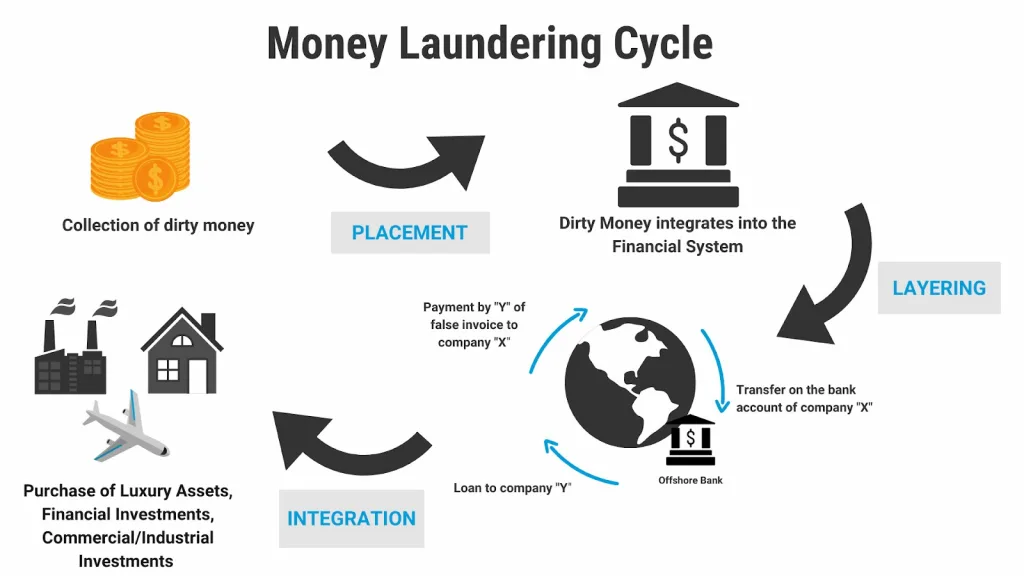Syllabus: GS3/ Internal Security
Context
- The Financial Action Task Force (FATF) in its Mutual Evaluation Report for India ‘Anti-Money laundering and Counter terrorist financing Measures’ has lauded India’s efforts to implement measures to tackle illicit finance including money laundering and terror funding.
What is Money Laundering?
- Money laundering is the illegal process of making large amounts of money generated by criminal activity, such as drug trafficking or terrorist funding, appear to have come from a legitimate source.
- In terrorism financing the funds were used to procure arms and ammunition and for training the cadres of the violent extremist organization, among other purposes.
- The money from the criminal activity is considered dirty, and the process “launders” it to make it look clean.

Measures taken by India
- Key Initiatives;
- Jan Dhan-Aadhaar-Mobile (JAM): Praised for enhancing financial transparency.
- GST E-Invoices and E-Bills: Promotes transparency in the supply chain.
- Indian Cyber Crime Coordination Centre: Strengthens cybercrime enforcement.
- Central KYC Records Registry (CKYCR): Repository for KYC data and customer records.
- Task Forces and Committees: Formed to address corruption, black money, drug trafficking, and fake currency.
- Collaboration between the Financial Intelligence Unit, law enforcement, and regulatory bodies.
- Investigative Agencies: The National Investigation Agency (NIA) and Enforcement Directorate (ED) effectively conducted probes.
- Task Force on Shell Companies: Over 3,82,000 entities were deregistered from 2017-2021.
| Financial Action Task Force (FATF) – The Financial Action Task Force (FATF) is an intergovernmental organization which leads global action to tackle money laundering, terrorist and proliferation financing. – History: FATF was established in 1989 by the G7 to examine and develop measures to combat money laundering. It originally included the G7 countries, the European Commission and eight other countries. In 2001, the FATF expanded its mandate to also combat terrorist financing. – Members: FATF has 40 members including India. Recently Indonesia has become a member of FATF. – FATF has the authority to issue warnings and sanctions against countries that fail to comply with its standards, such as suspension of membership and blacklisting. FATF ‘Grey list’ and ‘Blacklist’ – Black List: Countries known as Non-Cooperative Countries or Territories (NCCTs) are put on the Blacklist. These countries support terror funding and money laundering activities. – Grey List: Countries that are considered a safe haven for supporting terror funding and money laundering are put in the FATF Grey list. |
Source: TH
Previous article
Israel-Hezbollah Conflict